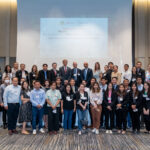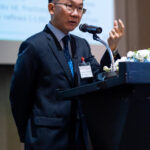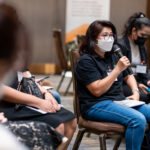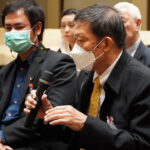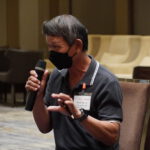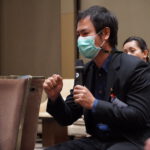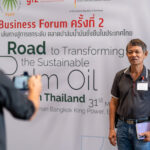
Thai policymakers and business actors came together for the Second Business Forum, jointly organised by the Roundtable on Sustainable Palm Oil (RSPO) and the German Organisation for International Cooperation (GIZ), to discuss the vital role Thailand can play in ensuring global food security, as well as meeting the global demand for sustainable edible oils, through enhanced agricultural practices, production, and global certification standards such as RSPO.
As the world’s third largest palm oil producer, Thailand’s development potential for certified sustainable palm oil (CSPO) is significant. Being the most efficient vegetable oil crop on the market that meets 40% of the global demand for vegetable oils, while only occupying 6% of the land used to produce vegetable oils, palm oil is especially beneficial in ensuring global food security for a growing population expected to reach 9.8 billion by 2050.

While oil palm smallholders account for over 70% of oil palm production in Thailand, they nevertheless lack opportunities to access microfinancing programmes, skills and knowledge about sustainable farming, as well as certification standards, which would enable them to access global markets.
Against this background, Department of Agricultural Extension and Department of Agriculture has joined forces with GIZ through the Sustainable and Climate-Friendly Palm Oil Production and Procurement (SCPOPP) project. Through this project, 19 palm oil companies have been engaged to support and train over 3,000 oil palm smallholders in sustainable farming practices. Over 200 trainers, who have undergone training themselves, have successfully trained and engaged with more than 3,000 smallholders. Moreover, in 2021, 400 smallholders have achieved RSPO certification and successfully connected to the global market, and another 1,500 smallholders are currently being trained and are expected to achieve certification by the end of 2022.
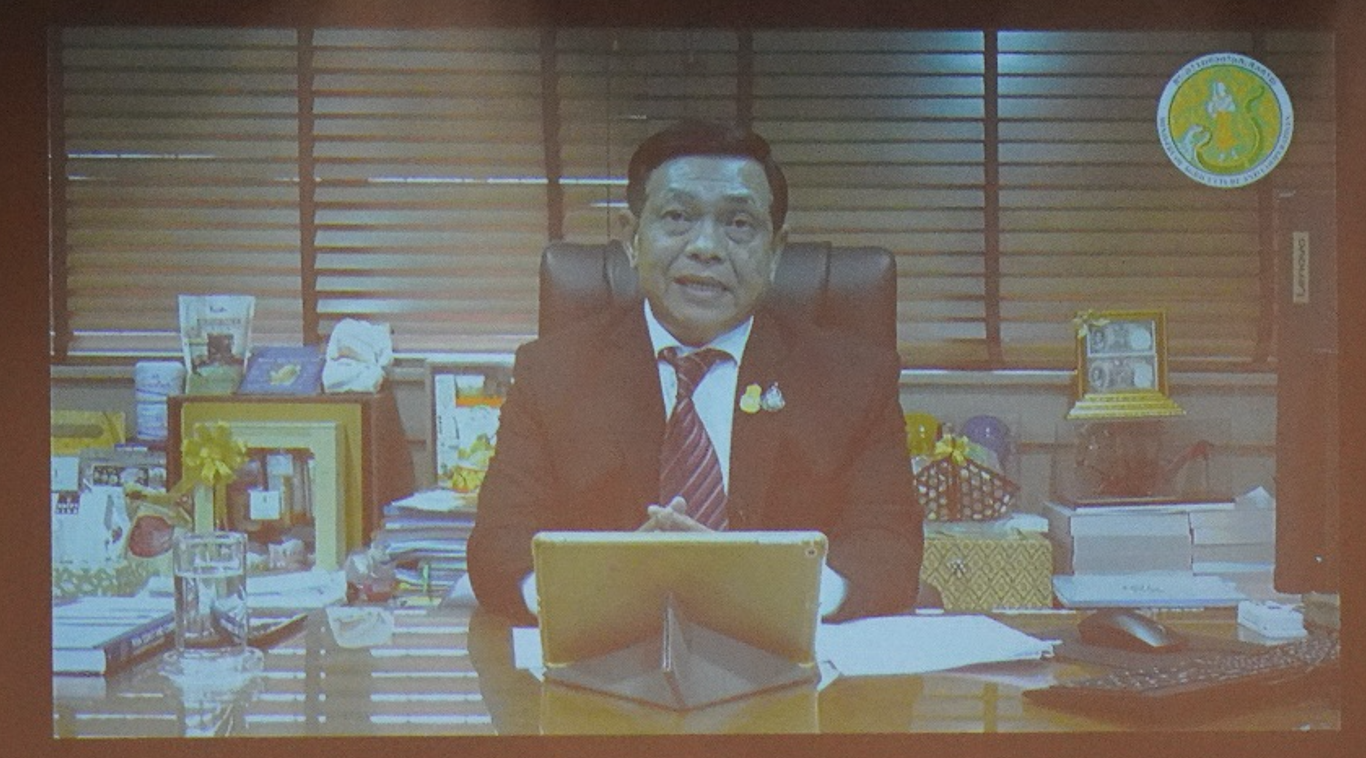
Phonbutr added that the Ministry of Agriculture, alongside RSPO, will work to raise the standards of sustainable palm oil production in Thailand, and accordingly the Thailand Sustainable Palm Oil Alliance (TSPOA) has been established to help create such standards. Furthermore, the National Bureau of Agricultural Commodity and Food Standards (NIDA) has also announced that it will establish standards on agricultural commodities related to oil palm
“Considering various crises with unpredictable volatility, this is an opportunity for all parties to review and share our goals towards a more sustainable future,” said Alongkorn. “Establishing the Thailand Sustainable Palm Oil Alliance could not come at a more perfect time. The Ministry of Agriculture and Cooperatives is pleased to support the establishment of such a network to raise the standards of Thailand for sustainable palm oil production. We continue to cooperate closely with the networks of all sectors, including the public sector, the private sector and civil society.”

Ensuring smallholder inclusion
In his opening address, RSPO’s Chief Executive Officer Joseph (JD) D’Cruz said, “Thailand finds itself in a unique position to help ensure global food security as the world’s third largest palm oil producer. What sets Thailand apart is the capacity of smallholders to propel the Thai palm oil industry. RSPO recognises the integral role of smallholders in achieving our overall vision of market transformation; ensuring their greater inclusion in sustainable solutions that positively impact their livelihoods remains one of our main goals. We see this as a shared responsibility that all players in the palm oil supply chain must commit to supporting.”

In his welcome address, GIZ Country Director for Thailand and Malaysia, Mr. Reinhold Elges said, “Food security is a controversial topic in international discussions. Moving towards sustainable and deforestation-free production and climate change mitigation and adaptation has become an essential pathway to secure food production and meet global demand. In Thailand, where palm oil production associated with forest destruction and violation of human rights is nearly non-existent, the Thai palm oil industry nevertheless faces the big challenge of inefficient farming practices by small-scale farmers. Mobilising investments to engage oil palm smallholders and enhance their capacity to achieve RSPO certification – which we regard as a viable Shared Responsibility – means upgrading Thailand’s palm oil industry to meet the global market, as well as helping to secure global food supply and reducing negative climate and environmental impacts.”
At present, RSPO certified sustainable palm oil represents 19.3% (14.8 million tonnes) of the total global palm oil supply, and in Thailand, RSPO certified sustainable palm oil accounts for just 4.97% of the country’s total palm oil supply.
GIZ works with both public and private partners to mainstream sustainable palm oil production in the country. We developed an interactive train-the-trainer learning programme, the Thailand Oil Palm Smallholder Academy (TOPSA) adopted from RSPO Smallholder Training Academy (STA) and organised a series of intensive training sessions to improve the capacity of over 3,000 smallholders in sustainable agricultural practices to achieve RSPO certification, and gain improved access to international markets.
“Trainers are key in engaging and improving smallholders’ capacity and knowledge on sustainable palm oil production. Therefore, the project invites and welcomes any organisations interested in supporting smallholders by becoming TOPSA partners and unlocking the potential of the Thailand palm oil industry together,” he said.
JD added, “In 2019 RSPO adopted the Independent Smallholder (ISH) Standard, which aims to help more smallholders achieve certification through a stepwise mechanism, while adhering to the key sustainability requirements. Despite the challenges of the global pandemic, we have witnessed positive progress among smallholders towards achieving ISH certification.” ■
Related Articles
- Collective action needed to increase the market for sustainable palm oil in Thailand
- Utilising online platform to enhance sustainable palm oil knowledge and capacity
- TOPSA trainers ready to put sustainable palm oil into action
- Top Thai palm oil brands commit to business sustainability
- “i-PALM”, a mobile application set to boost sustainable palm oil standard






